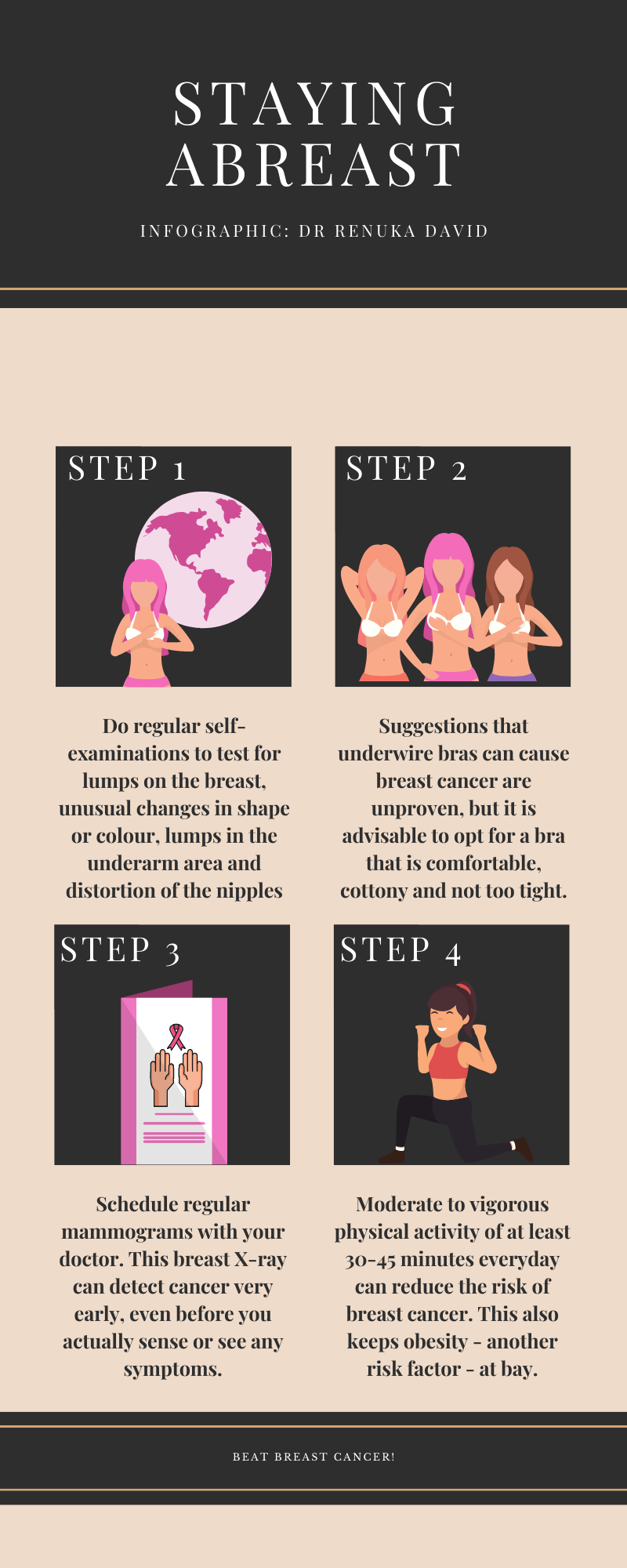Breast Cancer: Before & After Alerts To Keep In Mind
Prevention is definitely better than cure! And if you have to seek a cure, then it is better to seek it earlier rather than later, especially with a life-threatening disease such as cancer. Fortunately, in breast cancer, the signs and signals are often present in external tissue, since the breast by itself is not an organ within the body. Here are a few alerts to follow.

Breast Cancer Alert: Do A Self-Test At Home
While this isn’t a scientific screening method, doing a regular and thorough Breast Self Examination (BSE) at home, checking for abnormalities like lumps, dimples, inverted nipples and so on can alert women, and get them to seek help if they feel there is any change in the breast area. Once or twice a month is the recommended BSE frequency if you have dense breasts (since you are at greater risk), and once every two months is enough if you have lesser dense breasts.
Breast Cancer Alert: Ensure You Wear The Right Bra
While recent studies have shown that there is no correlation between wearing the right bra and prevention of cancer, it is best to wear soft, comfortable bras without an underwire for comfort and overall breast health. More importantly – always, always wear your correct size! Most good brands will offer size guides and teach you how to measure it for yourself. If you’ve had a mastectomy (breast removal) or a lumpectomy (removal of a lump on the breast, but not the breast itself), wear a bra that is made of cotton. It should have soft seams, and a wide underband, and should also cover the sides of your breast area completely. These days, many brands offer ‘flat bras’, which are comfortable for those who have had a mastectomy.
Breast Cancer Alert: Schedule Regular Screenings
This is one of the surefire ways to detect breast cancer early – sometimes even before you can feel or see it. Mammograms are X-ray screening tools of the breast, which check for any abnormalities within the breast tissue, not seen on the surface of the breast. When should you start and how often should you schedule them? There’s no fixed answer and you should ideally consult your doctor based on your individual risk factor, but it is advisable that anyone over 40 should get a mammogram done. Those between 45 and 54 should schedule an annual mammogram and those over 55 years can reduce it to once every two years. Some doctors recommend starting as early as 35 as well, getting an annual mammogram done all the way till you reach menopause. Women at higher risk can opt for Breast MRIs, while others at low risk opt for a Clinical Breast Exam (CBE) performed manually by a qualified doctor.
Breast Cancer Alert: Exercise Regularly
According to studies, women who exercise four hours a week or more, are at lesser risk of breast cancer than women who don’t get in enough. This is especially useful for premenopausal women, so try and get in at least 45 minutes a day of HIET or an hour a day of brisk walking or yoga.
